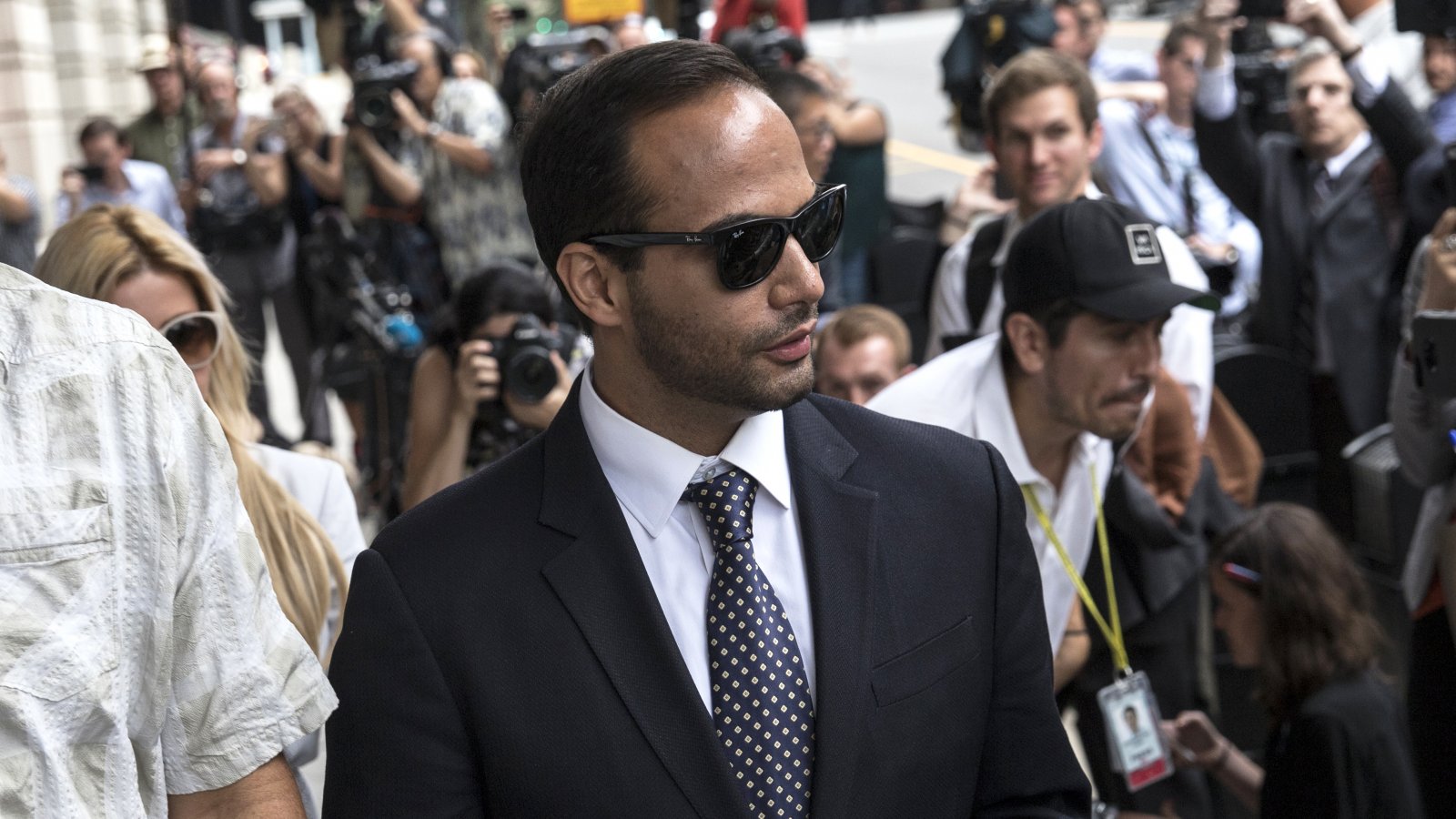
The Atlantic is reporting the existence of new letter with potentially incriminating information about George Papadopoulos that currently is under investigation by both the House Intelligence Committee and the FBI.
The letter, obtained last week by The Atlantic, was sent to Democratic Representative Adam Schiff’s office on November 19 by an individual who claims to have been close to Papadopoulos in late 2016 and early 2017. The letter was brought to the attention of Schiff and House Intelligence Committee staff, according to an aide who requested anonymity to discuss an ongoing investigation. The letter was also obtained by federal authorities, who are taking its claims “very seriously,” said two U.S. officials who also requested anonymity due to the sensitivities of the probe.
The statement makes a series of explosive but uncorroborated claims about Papadopoulos’s alleged coordination with Russians in the weeks following Trump’s election in November 2016, including that Papadopoulos said he was “doing a business deal with Russians which would result in large financial gains for himself and Mr. Trump.” The confidant said they were willing to take a polygraph test “to prove that I am being truthful” and had come forward now after seeing Papadopoulos “become increasingly hostile towards those who are investigating him and his associates.” A lawyer for Papadopoulos declined to comment.
If corroborated, the claims in the letter would add to an emerging portrait of Trump and his associates’ eagerness to strike backdoor deals with Russia even after the intelligence community concluded that Moscow had interfered in the 2016 election. (Trump’s son-in-law, Jared Kushner, tried to set up a “backchannel” to Russia in the weeks after the election and met with the CEO of a sanctioned Russian bank during the transition period. Trump’s former national security adviser Michael Flynn, meanwhile, negotiated with the Russian ambassador about U.S. sanctions before Trump was inaugurated.)
Papadopoulos started a 14-day prison sentence Monday, the result of his pleading guilty to lying to the FBI.
... Papadopoulos remains one of the most important figures in the Russia investigation. He was ostensibly the first member of the Trump campaign to learn that the Russians had stolen emails that they planned to use against Hillary Clinton during the 2016 election. Rather than tell the FBI about the Russian “dirt” on Clinton, Papadopoulos continued trying to facilitate a meeting between Trump and Russian President Vladimir Putin as the campaign wore on. His disclosure to an Australian diplomat in May 2016 that Russia had dirt on Clinton is purportedly what triggered the FBI’s Russia investigation—Australian officials reported the comment to American law enforcement authorities in July 2016, after WikiLeaks released the stolen DNC emails.
Federal and congressional investigators are now examining the letter to determine whether Papadopoulos’s ties to Russia were deeper than he has acknowledged, and whether he stayed in Trump’s orbit because of, rather than in spite of, those connections. The confidant who sent the letter to Schiff’s office last week claimed to have witnessed a phone call between Papadopoulos and Trump in December 2016, around the same time that Papadopoulos was allegedly boasting about the Russia deal and sending emails to Flynn and Trump’s campaign CEO, Steve Bannon. In one email, Flynn urged Papadopoulos to “stay in touch, and, at some point, we should get together.” Trump has called Papadopoulos “a coffee boy” who played no meaningful role on the campaign.
The Atlantic also explains in detail the extent to which Papadopoulos' contacts with the mysterious professor Joseph Mifsud as well as influential Greek officials add even more layers of suspicion.
Mifsud, who claimed to have high-level Kremlin contacts, told Papadopoulos in April 2016 that the Kremlin had dirt on Hillary Clinton in the form of thousands of emails—well before the Russian hacks on the Democratic National Committee or Hillary Clinton’s campaign chairman John Podesta were made public. Papadopoulos told the FBI that he learned of the Kremlin “dirt” before joining the Trump campaign, but that was a lie, according to prosecutors. He had already been a campaign adviser for well over a month by the time Mifsud told him about the stolen emails.
Mifsud was also apparently eager to connect Papadopoulos with his current wife, Simona Mangiante. Mangiante told The Atlantic last month that she first heard about Papadopoulos and his work for the Trump campaign after starting a job at the London Centre of International Law Practice, where Mifsud was the “Director for International Strategic Development,” in September 2016 ...
(...)
Papadopoulos’s closest association with the Greek government ... appears to have been with Greek Defense Minister Panos Kammenos, an outspoken supporter of Moscow with whom Papadopoulos met several times in 2016 and early 2017, including at Trump’s inauguration. In his congratulatory tweet celebrating Trump’s election victory, Kammenos noted Papadopoulos’s importance in maintaining U.S.-Greek relations. A NATO military intelligence official told BuzzFeed News earlier this year that the Greek Ministry of Defense “is considered compromised by Russian intelligence.”
(...)
It remains to be seen whether Schiff, the incoming chairman of the House Intelligence Committee, will subpoena Papadopoulos to appear before the panel once the Democrats take control in January. Patrick Boland, a spokesman for Schiff, told The Atlantic that, “at the appropriate time,” the congressman hopes to get “full answers on the range” of Papadopoulos’s “contacts with the Russians and their intermediaries.”
Full story: Papadopoulos’s Russia Ties Continue to Intrigue (The Atlantic)